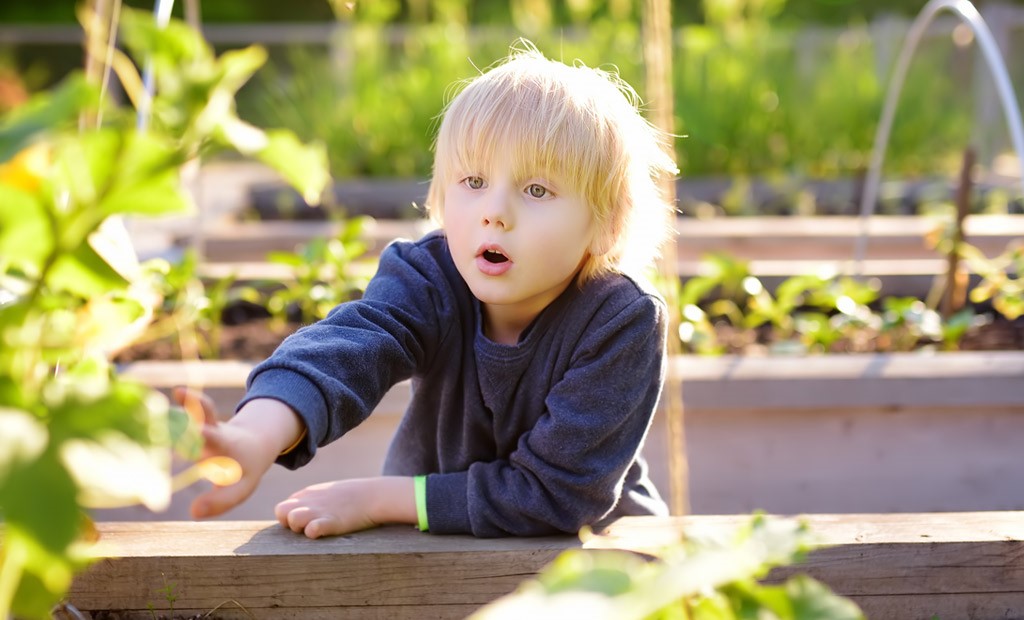Introducing children to gardening at a young age encourages them to develop skills and habits that will last a lifetime. It’s good exercise, helps children understand the link between plants and their food, and teaches the importance of sustainability. Gardening has been proven to benefit mental health, with an ever-growing body of research suggesting it reduces stress and helps concentration.
With schools looking for more ways to get pupils outside, a school garden can enhance the curriculum, helping develop numeracy, literacy and self-expression. There are social benefits too: ‘School gardens provide a space for young people to develop their teamwork and communication skills,’ says Alana Cama, schools and groups programme manager at the Royal Horticultural Society. ‘For those without a garden at home, a school garden can be a green haven. It’s a safe and accessible space.’
First steps
If your school has asked the PTA to help start a garden, or you’d like to propose it, first identify the funding, skills and resources you’ll need. Keep the benefits at the forefront of your approach and offer practical solutions to any barriers. Cama believes a well-thought-out plan is key to getting school staff and parents on board from the start: ‘A lack of practical know-how about how to design, build and maintain a garden, or what plants to grow, can feel like a huge challenge if you don’t have experience. Find out if any parents have the appropriate knowledge or run a garden-themed fundraiser to pay for an expert.
‘When it comes to funding, there are grant-giving trusts who can help, and some big organisations, such as Tesco also offer grants for school gardens. Crowdfunding is another good option.’ She points out that many schools have successfully connected with local garden centres and DIY stores to source garden supplies.
‘Freebay, Freecycle and Facebook are also excellent places to find good-quality used equipment. Never underestimate how much you can build from recycled materials – wooden pallets can be turned into planters or raised beds, and plants can be grown in almost any container, from tins to old shoes.’
A garden for all
A flourishing garden needs regular time and effort, but Sarah Alun-Jones, farm and outdoor learning director at GROW, an agroecological farm and outdoor learning hub at The Totteridge Academy in North London, thinks this is ‘precisely what makes it such a good community project’. With school children off-site during the school holidays, at weekends and in the long summer evenings, there are plenty of times when community volunteers can help tend a garden.
‘Encourage people to come forward by holding an open day where people can see your space and find out what you're doing.’ she says. ‘Invite local families – even if their children aren't at the school – and research your local area to see who else might help.’ This could include allotment associations, local gardening groups and anyone who works in a related industry.
Use your garden for good in your local community by opening up your produce sale to the public or taking a stall at a local farmers market or village fair. Alternatively, find a way to bring together sections of the community that wouldn’t usually meet. The RHS initiative Grow Social, for instance, encourages pupils to reach out to isolated members of the community and share their love of plants: brighten up a care home with bunches of sunflowers or help a vulnerable person grow their own vegetables by organising a seedling drop.
Resources
- The RHS Campaign for School Gardening has a huge range of resources including information sheets, activity ideas, how-to guides and lesson plans. Schools can also enter its School Gardening Awards schoolgardening.rhs.org.uk
- Food for Life is a Soil Association programme that helps schools build knowledge and skills. Its Schools Award supports schools in initiatives such as growing their own food, visiting farms and setting up cooking and growing clubs for pupils and their families foodforlife.org.uk
- Tesco Community Grants awards charities and local community organisations grants of up to £1,500 through its blue token scheme tescocommunitygrants.org.uk
- Learning Through Landscapes is a charity that promotes children’s outdoor learning. As well as resources and courses for educators, it offers grants for outdoor learning training and equipment ltl.org.uk
- GROW is a London-based charity that works with schools to deliver tailor-made programmes in sustainable food growing and outdoor learning wearegrow.org.






